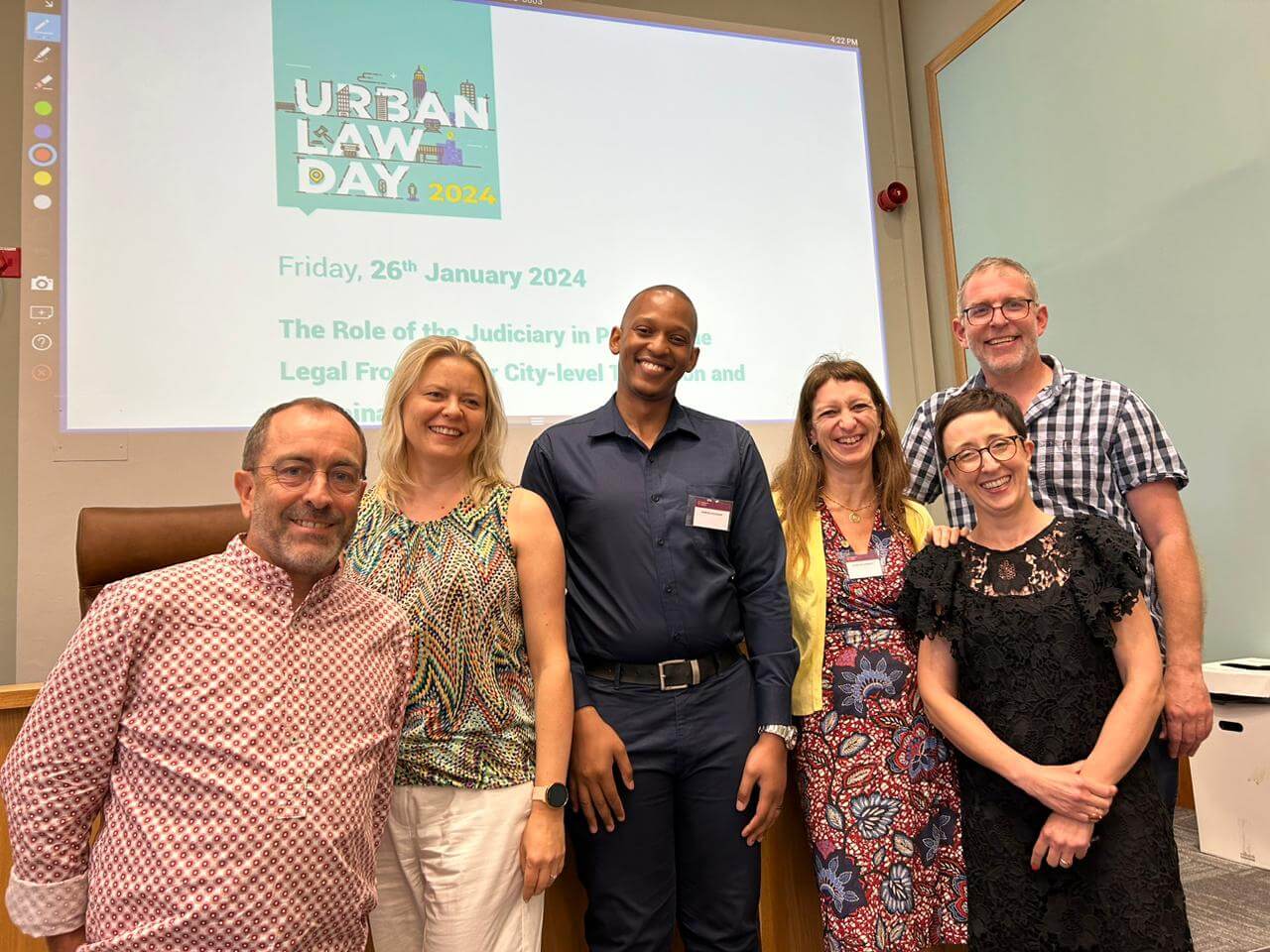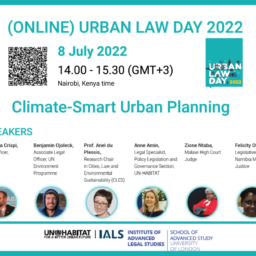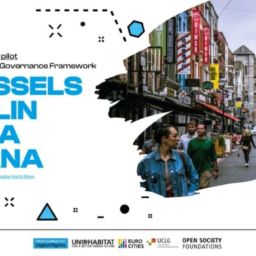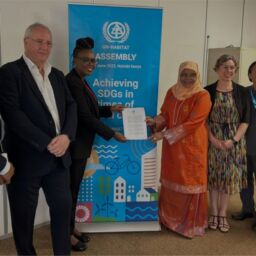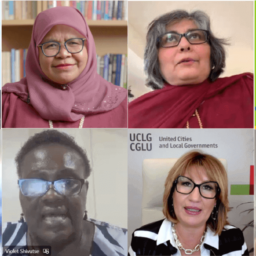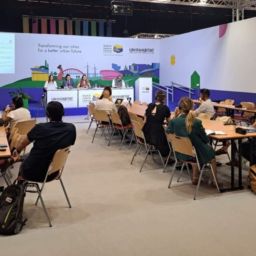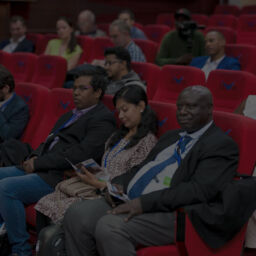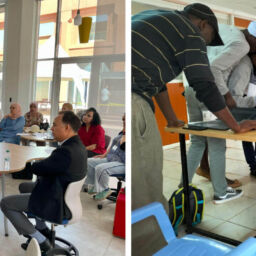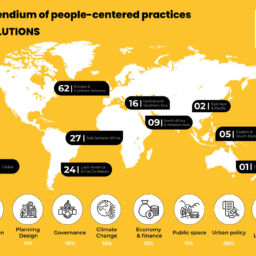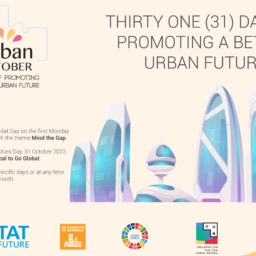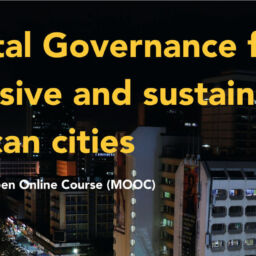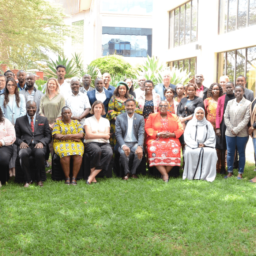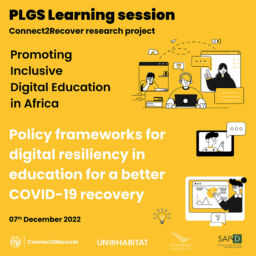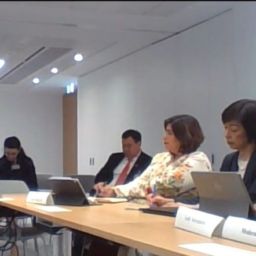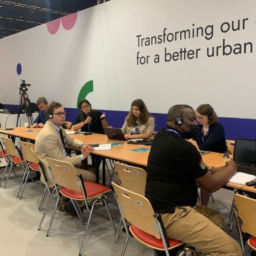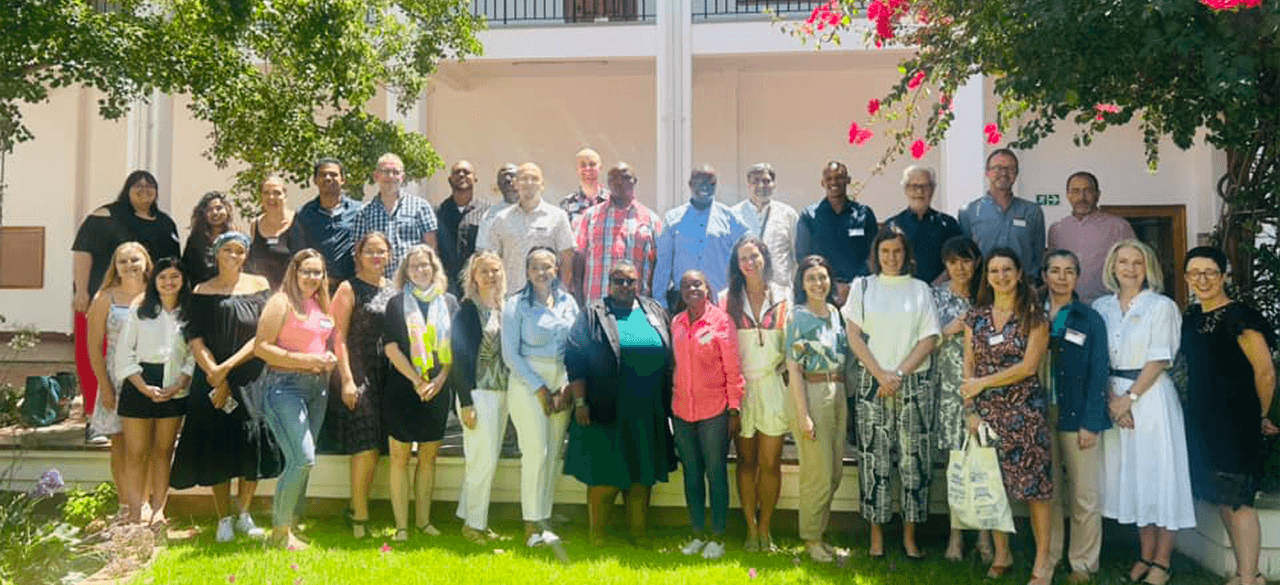
26th January 2024 | Stellenbosch, South Africa
On Friday the 26th of January 2024, UN-Habitat’s Policy, Legislation and Governance Section, the University of Stellenbosch Faculty of Law Chair in Urban Law and Sustainability Governance, and the Konrad-Adenauer Stiftung Regional Programme Energy and Security and Climate Change in Sub-Saharan Africa organized an Urban Law Day Symposium. The Chair in Cities, Law and Environmental Sustainability, North-West University, South Africa and the University of Freiburg (Urban Footprints Project) were also partner institutions. The Urban Law Day was attended by approximately 52 scholars – 32 in person and an average of 20 online.
In line with this year’s theme of “The Role of the Judiciary in Pushing the Legal Frontiers for City-level Transition and Sustainability”, four panel sessions took place, focusing on how the courts may contribute to urban law development (or not) by exploring conceptual ideas and cases that have appeared before domestic and other courts.
The consensus reached by the various academics, jurists and practitioners participating in the panels, was that the judiciary and the legislation that it is tasked to enforce may discharge its functions in such a way that the rule of law is upheld and that access to justice is promoted, especially in the face of climate crises and the challenges posed by urbanization.
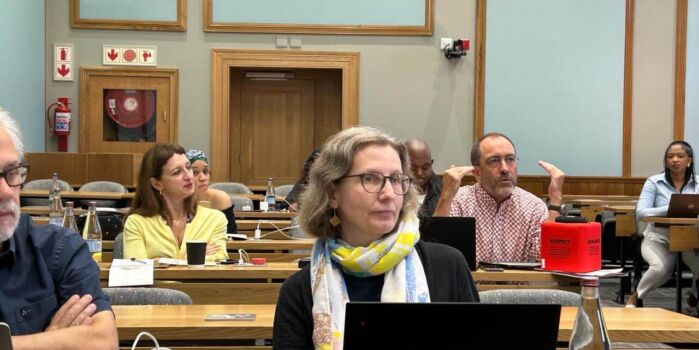
UN-Habitat’s key message, which was derived from its recent normative work such as the benchmarking case studies on planning laws and public participation in different developing and developed country contexts, was that a human rights-based approach dictates that the dispute resolution system must be inclusive and impartial, by for example, providing physical and fiscal assistance to people who are unable to afford legal representation and access to the justice system. This also means recognizing alternative dispute resolution mechanisms, such as arbitration and mediation, which are generally confidential, less formal, less stressful than traditional court proceedings and importantly, seen as more accessible to the less privileged in society.
